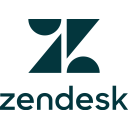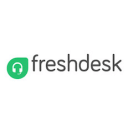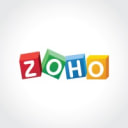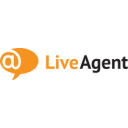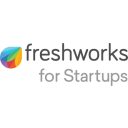Zoho Desk vs Zendesk: Selecting the ideal customer support solution for your business
- 01Zoho Desk vs Zendesk: overview
- 02What's the difference between Zoho Desk and Zendesk?
- 03Zoho Desk pros and cons
- 04Zendesk pros and cons
- 05Zoho Desk compared to Zendesk
- 06Zendesk compared to Zoho Desk
- 07Features comparison
- 08Zoho Desk vs Zendesk: Which is the best for your business?
- 09Promotions on Customer Support software
- 10Alternatives to Zoho Desk & Zendesk
Save up to $50,000 on Zendesk
Save up to $50,000 on Zendesk
Effective customer support is crucial for maintaining customer satisfaction and building strong relationships with your clients. When it comes to selecting the right customer support management solution, it's essential to carefully evaluate your options.
In this article, we will delve into a head-to-head comparison of two prominent customer support platforms, Zoho Desk vs Zendesk. By examining their key features and distinguishing characteristics, you'll gain valuable insights into which platform is the ideal choice for optimizing your business's customer support operations.
Zoho Desk vs Zendesk: overview
Zoho Desk and Zendesk are prominent contenders in the realm of customer support and service management, each tailored to address distinct requirements and preferences.
Zoho Desk is celebrated for its expertise in customer support ticketing, knowledge base creation, and multichannel communication. It offers a comprehensive platform designed to help businesses provide exceptional customer service by efficiently managing support tickets, knowledge resources, and customer interactions across various channels. In contrast, Zendesk specializes in customer service software with a strong emphasis on helpdesk ticketing, customer engagement, and analytics. It excels in empowering businesses to handle customer inquiries and issues efficiently, offering a wide range of tools for ticket management, self-service options, and in-depth reporting.
When it comes to choosing between Zoho Desk and Zendesk, your decision should revolve around your specific business objectives and customer support needs. If your primary goal is to streamline your customer support operations, enhance knowledge sharing, and provide seamless multi channel support, Zoho Desk may be the preferred choice. However, if you require robust helpdesk ticketing capabilities, advanced reporting, and a comprehensive customer engagement platform, Zendesk is likely the more suitable option for your business's customer support management.
What's the difference between Zoho Desk and Zendesk?
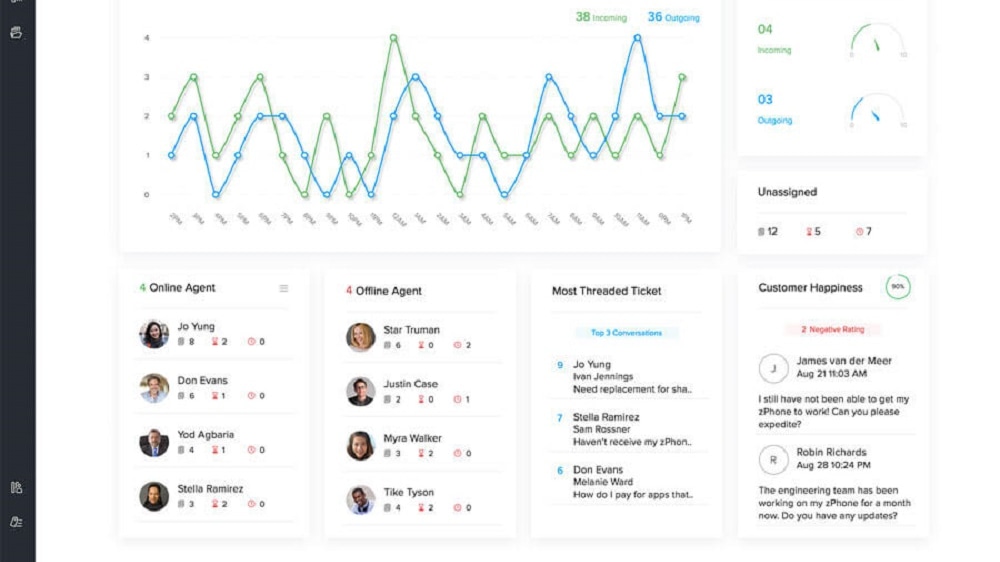

Zoho Desk and Zendesk are powerful customer service platforms, but there are differences that set them apart. At first, Zoho Desk stands out thanks to its omnichannel support experience, which includes email, live chat, telephony, social media, and instant messaging. Overall, such an approach allows them to personalize their services according to customer needs. Furthermore, it prides itself on its user-friendly features, which include customization options for the views and ticketing organization features (based on priority and status, for example), which Zendesk only offers through extensions. Finally, the self-service options, including a customizable help center and multilingual support, round out the offer for its customers.
Similarly, Zendesk offers a user-friendly help desk solution, placing focus on customization options and trying to have the best user interface among customer service platforms. While Zoho Desk has a more integrated approach, Zendesk focuses on additional apps if you need email, live chat, telephony, and social media support. While this is great if you wish to tailor your experience to the smallest details, keep in mind that this will come at a higher cost compared to Zoho Desk. Here, too, you will find multichannel support but also customizable reporting and analytics features to help you make data-driven decisions. Finally, setting up Zendesk is fairly simple, making it a solid choice for businesses looking to hit the ground running.
While both platforms offer a lot of features, the main difference lies in the pricing and the overall value proposition. Zoho Desk has a robust feature set with a more reasonable price point. If you’re a smaller business looking for a cost-effective customer service solution without wanting to sacrifice functionality, then Zoho Desk could be a solid option. On the other hand, Zendesk comes at a higher price point but can be scaled much more easily thanks to its extensions. The final choice will depend on the specific needs and priorities of each business, while Zoho Desk is more integrated and affordable, Zendesk is more scalable and customizable.
6 months free on Zendesk
Get 6 months free on Zendesk and up to $50,000 savings with Secret.
Zoho Desk pros and cons
What are the advantages of Zoho Desk?
- Multichannel support: Zoho Desk allows you to manage customer interactions across various channels, including email, chat, phone, and social media, making it easier to provide support where your customers are.
- Automation: It offers robust automation features, helping you streamline repetitive tasks, assign tickets automatically, and send canned responses, improving efficiency.
- Knowledge base: Zoho Desk includes a knowledge base feature for creating and sharing self-service articles and FAQs, reducing the volume of support tickets and empowering customers to find answers on their own.
- Integration: It integrates seamlessly with other Zoho products and offers integrations with popular third-party apps, allowing you to connect your customer support with other aspects of your business.
- Analytics and reporting: Zoho Desk provides detailed analytics and reporting tools to track key performance metrics, enabling data-driven decision-making and performance improvement.
What are the disadvantages of Zoho Desk?
- Learning curve: The initial setup and customization of Zoho Desk can be complex, requiring some time and effort to get the system configured to your specific needs.
- Limited features in lower tiers: The most advanced features, like AI-powered chatbots, are often available only in higher-priced plans, which may not be suitable for small businesses with limited budgets.
- Customer support: While Zoho Desk is a customer support tool, some users have reported inconsistent customer support from Zoho themselves, which can be frustrating when you need assistance.
- Reporting complexity: While it offers robust reporting, creating and customizing reports can sometimes be challenging for users who are not experienced with data analysis.
- Lack of social media monitoring: While Zoho Desk supports social media channels for customer interactions, it lacks advanced social media monitoring capabilities, which may be essential for businesses with a strong social media presence.
Compare Zoho Desk to other tools
Zendesk pros and cons
What are the advantages of Zendesk?
- Robust ticketing system: Zendesk offers a powerful ticketing system that allows you to efficiently manage and track customer inquiries, ensuring nothing falls through the cracks.
- Multichannel support: It provides a unified platform for handling customer interactions across various channels, including email, chat, social media, and phone, streamlining communication.
- Customization and scalability: Zendesk is highly customizable, enabling you to tailor the system to your specific needs. It's suitable for businesses of all sizes, from startups to large enterprises.
- Extensive app marketplace: Zendesk boasts a vast marketplace with over 1,000 integrations and apps, allowing you to extend its functionality to meet your unique requirements.
- Analytics and reporting: The platform offers robust analytics and reporting tools, providing insights into support performance, customer satisfaction, and agent productivity to drive improvements.
What are the disadvantages of Zendesk?
- Cost: Zendesk's pricing can be relatively high, particularly for businesses with a large support team or those requiring advanced features, making it less budget-friendly for some organizations.
- Learning curve: Setting up and configuring Zendesk, especially for complex workflows, can be challenging, requiring time and expertise to get the most out of the system.
- Limited automation in lower tiers: Some automation features, like triggers and automations, are only available in higher-priced plans, potentially limiting automation capabilities for smaller businesses.
- Ticket organization complexity: While Zendesk's ticketing system is powerful, it may become complex to manage for organizations with a high volume of tickets and complex workflows.
- Customer support response time: Some users have reported longer response times from Zendesk's customer support, which can be frustrating when assistance is needed urgently.
Compare Zendesk to other tools
Zoho Desk compared to Zendesk
Zoho Desk and Zendesk are two popular customer support software solutions, each with its own strengths. Zoho Desk’s pricing offers cost-effective options with robust multichannel support and automation features. It's ideal for businesses seeking an integrated customer support system that streamlines ticket management and knowledge sharing.
On the other hand, Zendesk excels in scalability and customization, making it suitable for businesses of all sizes. It offers an extensive app marketplace and in-depth reporting tools. The choice between Zoho Desk and Zendesk ultimately depends on your specific needs, budget, and the level of customization and scalability required for your customer support operations.
Is Zoho Desk better than Zendesk?
Deciding whether Zoho Desk is better than Zendesk hinges on your specific requirements. Zoho Desk offers a cost-effective customer support solution with multichannel support and automation, making it a strong choice for small to mid-sized businesses.
However, Zendesk's strength lies in its scalability, extensive customization options, and a vast app marketplace, catering to organizations of all sizes and complexities. The choice should consider factors like budget, the need for advanced customization, and the size and complexity of your customer support operation. Careful evaluation of these elements will help determine which platform aligns better with your particular needs and objectives.
What is Zoho Desk best used for?
Zoho Desk is best used for streamlining and enhancing customer support operations. It provides a comprehensive platform for managing customer inquiries and support tickets across multiple channels, such as email, chat, phone, and social media.
Zoho Desk excels in automating routine tasks, assigning tickets, and maintaining a well-organized knowledge base. It's an ideal solution for businesses seeking to deliver exceptional customer service, improve response times, and foster customer satisfaction. Additionally, it offers valuable insights through reporting and analytics, enabling data-driven decisions to enhance the overall customer support experience.
Can Zoho Desk replace Zendesk?
Whether Zoho Desk can replace Zendesk depends on your specific needs. Zoho Desk offers robust customer support features, including ticket management, knowledge base, and automation, making it suitable for many businesses. However, Zendesk's extensive customization options, scalability, and vast app marketplace may better accommodate larger enterprises or those with complex workflows.
Transitioning from Zendesk to Zoho Desk may require careful planning and evaluation of features, integrations, and costs. While Zoho Desk can be a suitable alternative for some, the decision should consider factors like company size, support requirements, and the level of customization needed to ensure a seamless transition.
Is Zoho Desk cheaper than Zendesk?
Zoho Desk is generally considered a more budget-friendly option compared to Zendesk. Zoho Desk offers various pricing plans, including a free plan for small teams, making it accessible to businesses with limited budgets. While its feature set is robust, some advanced features may require additional add-ons.
In contrast, Zendesk tends to be more expensive, especially for larger teams or businesses needing advanced customization and integrations. Zendesk's pricing can vary significantly based on the plan and the number of agents, potentially making it less cost-effective for smaller organizations.
Is there a better Customer Support software than Zoho Desk?
When it comes to choosing the right software for your customer support and helpdesk needs, it's essential to explore alternatives to Zoho Desk.
Several notable alternatives to Zoho Desk include Zendesk, Freshdesk, Help Scout, and Kayako.
Selecting the best software for your specific requirements depends on factors such as the scale of your customer support operation, budget, and the additional features you may need. Zoho Desk is known for its cost-effectiveness and multichannel support, making it a solid choice for many businesses. However, exploring these alternatives can help you discover the software that aligns best with your unique customer support and helpdesk management needs.
Zendesk compared to Zoho Desk
Zendesk and Zoho Desk are both popular customer support solutions, but they differ in key aspects. Zendesk is known for its scalability, extensive customization options, and a vast app marketplace, making it suitable for businesses of all sizes. It excels in flexibility and advanced reporting capabilities.
On the other hand, Zoho Desk offers cost-effective customer support features, including multichannel support and automation, making it a solid choice for small to mid-sized businesses. The decision between Zendesk and Zoho Desk hinges on factors like budget, the need for advanced customization, and the size and complexity of your customer support operation.
Is Zendesk better than Zoho Desk?
Zendesk and Zoho Desk are two popular customer support software options, each with its own strengths. Zendesk is known for its robust features, scalability, and user-friendly interface. It offers a wide range of integrations and customization options, making it suitable for larger businesses with complex support needs.
Zoho Desk, on the other hand, is a cost-effective solution with a strong focus on automation and AI-driven features. It's ideal for smaller businesses looking for an affordable way to streamline their customer support processes. The choice between the two depends on your specific needs, budget, and company size, as both have their advantages.
What is Zendesk best used for?
Zendesk is best used for managing and optimizing customer support and service operations. It provides a comprehensive platform for businesses to efficiently handle customer inquiries and support tickets across various channels, such as email, chat, phone, and social media.
Zendesk excels in customization and scalability, allowing organizations of all sizes to tailor the system to their unique needs and accommodate growing support demands. It offers an extensive app marketplace, advanced reporting tools, and analytics, making it ideal for those seeking to enhance customer engagement, streamline workflows, and gain valuable insights into support performance to improve the overall customer experience.
Can Zendesk replace Zoho Desk?
Whether Zendesk can replace Zoho Desk depends on your specific requirements. Zendesk offers a robust customer support solution with scalability, customization options, and a wide app marketplace, making it suitable for businesses of various sizes and complexities. Transitioning from Zoho Desk to Zendesk may require careful planning and evaluation of features, integrations, and costs.
While Zendesk is a viable alternative, Zoho Desk has its strengths, such as cost-effectiveness and multichannel support, which may align better with certain organizations. The decision should consider factors like company size, support needs, and the level of customization required to ensure a seamless transition.
Is Zendesk cheaper than Zoho Desk?
Zendesk and Zoho Desk have different pricing structures, and whether one is cheaper than the other depends on your specific requirements. Zoho Desk is generally considered more budget-friendly, offering cost-effective plans, including a free option for small teams. However, some advanced features may require additional add-ons, affecting the total cost.
Zendesk's pricing can vary, but it's often perceived as relatively higher, especially for larger teams or businesses needing extensive customization and integrations. Ultimately, the cost comparison depends on your specific needs, the number of agents, and the required features. Careful evaluation of both platforms will help determine which aligns better with your budget.
Is there a better AI Customer Support software than Zendesk?
When evaluating customer support software options, it's essential to consider whether there's a better fit for your needs than Zendesk.
Several notable alternatives to Zendesk in the customer support and helpdesk space include Zoho Desk, Freshdesk, Help Scout, and Kayako.
Choosing the right customer support software depends on your specific requirements, such as scalability, customization, and budget constraints. Zendesk stands out for its customization options and vast app marketplace, but exploring these alternatives can reveal which platform aligns best with your unique customer support objectives. While Zendesk may be the ideal choice for some, assessing these alternatives can help you make a well-informed decision that suits your specific customer support management needs.
6 months free on Zendesk
Get 6 months free on Zendesk and up to $50,000 savings with Secret.
Features comparison
Zendesk Offers Better Customization and Branding Opportunities than Zoho Desk

When evaluating the capabilities of Zendesk and Zoho Desk in the realm of customer support, a notable distinction emerges in terms of customization and branding. Zendesk offers a level of flexibility and personalization that sets it apart. Businesses can fine-tune the platform to align with their unique branding and design preferences, thus ensuring a consistent and cohesive customer experience across all support interactions. For example, a company can customize the ticket submission forms, email notifications, and even the support portal to reflect its branding elements, fostering brand consistency and recognition.
In contrast, while Zoho Desk offers a range of practical features for effective customer support, it does not provide the same degree of flexibility and customization opportunities as Zendesk. The customization options within Zoho Desk are more limited, which may restrict businesses that seek to deliver a highly tailored customer experience.
Zendesk's Integration Superiority Outshines Zoho Desk
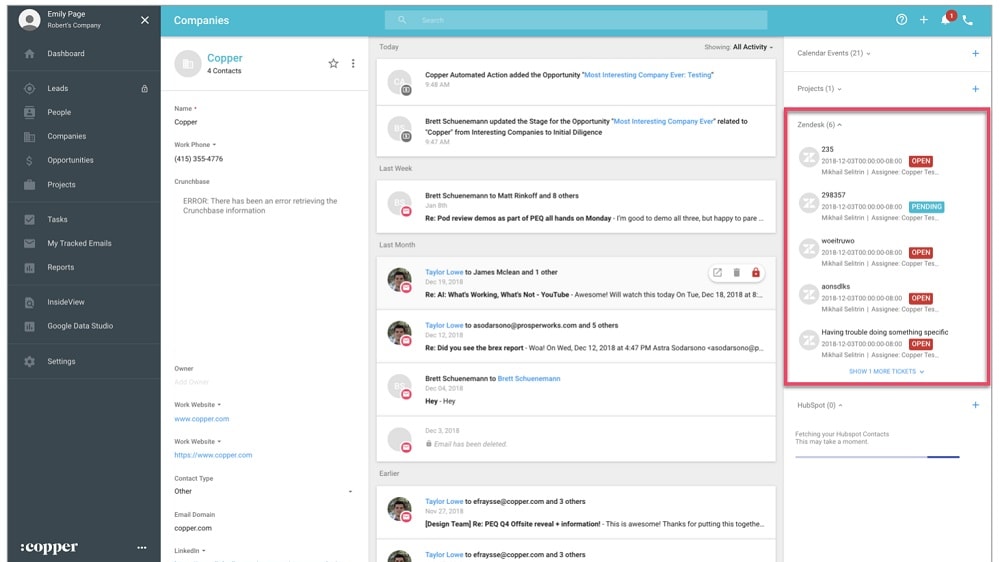
When it comes to integration possibilities, Zendesk gains a distinct advantage over Zoho Desk. Zendesk boasts an impressive directory of over 1000 integrations, positioning it as a versatile platform for seamless connections with a wide range of third-party applications. This extensive integration potential simplifies workflow management by bridging communication channels, CRM systems, social media platforms, and more. For instance, Zendesk can easily integrate with popular tools like Slack, Salesforce, and Shopify, enhancing cross-functional collaboration and data synchronization.
On the other hand, while Zoho Desk offers robust integration features, it tends to have a narrower spectrum of connections compared to Zendesk. Zoho Desk seamlessly integrates within the Zoho ecosystem, ensuring compatibility with other Zoho applications. However, it may not offer the same breadth of external integrations as Zendesk, limiting its versatility for businesses seeking comprehensive integration capabilities. Therefore, Zendesk emerges as the preferred choice for companies looking to expand their integration horizons and streamline their operations through extensive third-party connections.
Zoho Desk's Intelligent Ticketing Surpasses Zendesk's Traditional Approach

In the realm of ticketing systems, Zoho Desk's smart approach outperforms Zendesk's conventional ticketing system by a significant margin. Zoho Desk employs automated processes to prioritize and assign customer queries intelligently. This dynamic functionality ensures that critical and time-sensitive issues receive immediate attention, elevating the efficiency of the support team. For instance, if a customer inquiry indicates a critical problem, Zoho Desk can automatically escalate it to the top of the queue, ensuring swift resolution.
In contrast, Zendesk's ticketing system, while structured and effective in its own right, lacks the built-in intelligence that Zoho Desk provides. Zendesk offers a more traditional ticketing approach that relies heavily on manual categorization and assignment. This means that without the automated intelligence of Zoho Desk, there may be a delay in addressing urgent customer concerns.
Zoho Desk and Zendesk Offer Equally Strong Multichannel Support

When it comes to multichannel support, both Zoho Desk and Zendesk shine brightly in their own right. These platforms enable businesses to establish and manage customer connections seamlessly across a plethora of communication channels, including emails, phone calls, social media, and live chats. This multifaceted approach enhances a company's ability to engage with customers on their preferred platforms, ultimately broadening their reach and accessibility.
One notable advantage of both Zoho Desk and Zendesk is their capability to centralize all customer interactions within a unified dashboard. This consolidation is exemplified when, for instance, a customer inquiry initiated on social media seamlessly transitions into an email conversation. This unified view ensures that support agents are well-informed, providing contextually rich responses and eliminating the need for customers to repeat themselves.
Zoho Desk and Zendesk Provide Comparable Reporting and Analytics
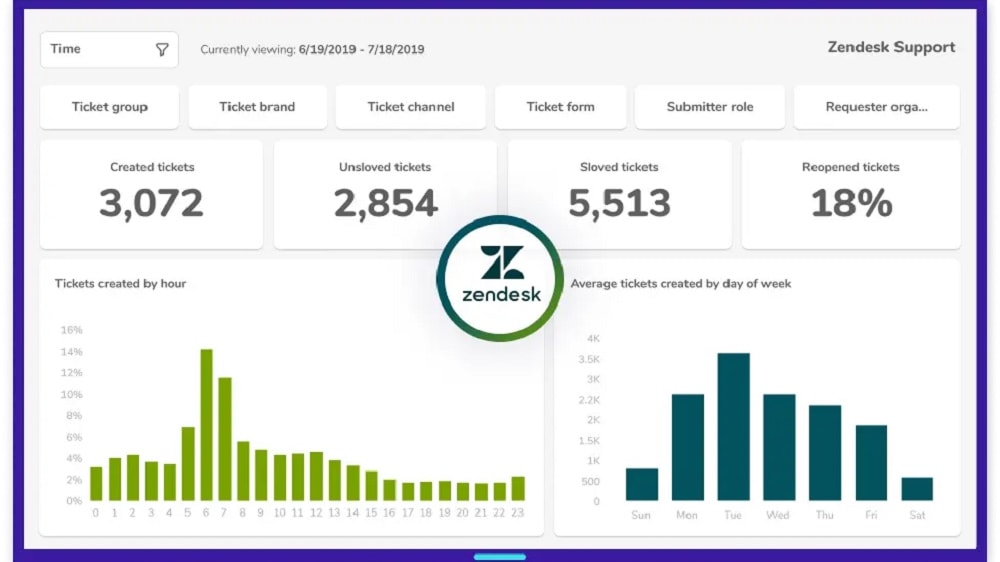
In the realm of customer support software, both Zoho Desk and Zendesk shine brightly when it comes to providing comprehensive reporting and analytics tools. These features are pivotal for businesses seeking to track essential metrics and delve into customer trends and agent performance.
For instance, Zendesk offers detailed reports that enable users to monitor response times, ticket volumes, and customer satisfaction rates. These insights allow support teams to identify bottlenecks and areas requiring improvement, ultimately leading to more efficient operations and happier customers.
Similarly, Zoho Desk doesn't fall short in this arena. It provides an array of analytics tools that empower businesses to gain valuable insights into their customer support performance. By tracking key metrics, such as first response times, ticket resolutions, and customer feedback, organizations can fine-tune their support strategies and elevate the quality of their services.
Zoho Desk's User-Friendly Edge Over Zendesk

When it comes to evaluating the user-friendliness of Zoho Desk and Zendesk, Zoho Desk emerges as the more accessible option. Its user interface is notably clean and intuitive, providing an effortless experience for customer support teams. Zoho Desk goes the extra mile by offering step-by-step prompts that assist new users in navigating the system seamlessly. For instance, when setting up automated workflows, Zoho Desk offers clear guidance, ensuring users make the most of its automation capabilities.
Moreover, Zoho Desk's visually appealing interface simplifies data interpretation and task execution. With an elegant design, users can quickly locate essential features, enhancing productivity. In contrast, while Zendesk boasts power and versatility, it demands a steeper learning curve, potentially requiring more time for businesses to become fully proficient with its features and integrations.
Zoho Desk's AI-Powered Support Outpaces Zendesk

In the realm of customer support software, Zoho Desk stands out by harnessing the power of artificial intelligence to a remarkable extent. Zoho Desk's AI-driven features delve deep into ticket patterns, predict customer satisfaction levels, and even recommend response templates based on historical data and context. This advanced AI assistance equips support agents with the tools to swiftly provide effective solutions, fostering consistent and high-quality support experiences. For example, Zoho Desk can intelligently identify recurring issues, allowing agents to address them proactively, thereby improving customer satisfaction.
In contrast, while Zendesk offers automation and workflow tools, it does not leverage AI to the same extent as Zoho Desk. This distinction gives Zoho Desk a competitive edge, especially when it comes to enhancing agent efficiency and delivering personalized, data-driven support solutions.
Subscribe to our newsletters.
No FOMO here. Stay up-to-date on all the latest deals and news with our monthly newsletter straight to your inbox like 127,000+ entrepreneurs (+ Get 10% off on on our Premium Membership!)
Zoho Desk vs Zendesk: Which is the best for your business?
Zoho Desk is the best tool for you if:
- You prioritize user-friendly interfaces and streamlined ticket management for efficient customer support.
- Your business operates within the Zoho ecosystem, as it seamlessly integrates with other Zoho applications.
- AI-driven insights and automated ticket prioritization are crucial for optimizing customer satisfaction.
- Customization and branding options are essential to maintain a consistent brand experience in your support interactions.
- Robust reporting and analytics capabilities are vital for tracking and improving support performance.
Zendesk is the best tool for you if:
- Your company values extensive integration possibilities, as it offers a vast directory of over 1000 integrations.
- You prefer a traditional yet effective ticketing system, even without built-in AI intelligence.
- Customization and branding are not top priorities in your customer support strategy.
- Your team requires multichannel support capabilities to engage customers across various communication channels.
- You seek a reliable platform with robust reporting and analytics for data-driven support optimization.
6 months free on Zendesk
Get 6 months free on Zendesk and up to $50,000 savings with Secret.
Alternatives to Zoho Desk & Zendesk
Promotions on Customer Support software
Start saving on the best SaaS with Secret.
Secret has already helped tens of thousands of startups save millions on the best SaaS like Zoho Desk, Zendesk & many more. Join Secret now to buy software the smart way.


